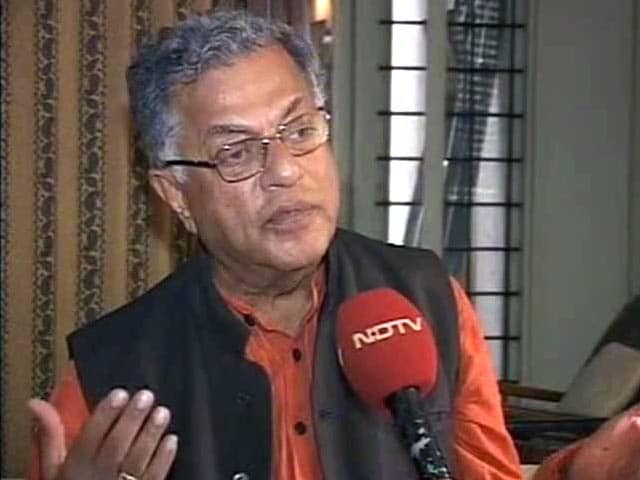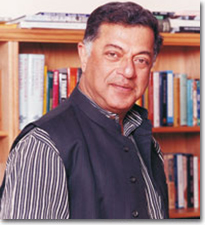Girish Karnad Serials
New Delhi: Remembering Girish Karnad, veteran actor, director, noted playwright, multi-lingual scholar and reputed scholar.He died on Monday morning at the age of 81 in Bengaluru. 'Karnad died at home at around 8.30 am due to age-related symptoms,' an official in the Karnataka Chief Minister`s office told news agency IANS.Karnad was a Jnanpith award winner and he was also honoured with the Padma Shri and the Padma Bhushan, apart from multiple National Film Awards and a Sahitya Akademi honour.In a career spanning six decades, Karnad acted predominantly in Kannada and Hindi films.
He also featured in television serials, including the 'Malgudi Days'.Karnad made his acting as well as screenwriting debut with 1970 Kannada film 'Samskara', which won the first President's Golden Lotus Award for Kannada cinema. He later followed it up with films such as 'Tabbaliyu Neenade Magane', 'Ondanondu Kaladalli', 'Cheluvi', 'Kaadu' and 'Kanooru Heggaditi'.He made his directorial debut with 'Vamsha Vriksha', 1971, based on a Kannada novel by L Bhyrappa.
The film won him National Film Award for Best Direction. Karnad has also made several documentaries, which has won many accolades nationally and internationally.For television audiences, Karnad may be remembered as Swami's father in 'Malgudi Days' or as the presenter of Doordarshan's science show 'Turning Point', while in Hindi cinema, the audiences remember him for his roles in films such as 'Manthan', 'Nishant', 'Pukar', 'Iqbal', 'Dor' and 'Ek Tha Tiger'.Meanwhile, some of his best-known plays are 'Yayati', 'Tughlaq', 'Hayavadana', 'Naga-Mandala', 'Taledanda' and 'Agni Mattu Male'.
They have been translated into English as well as different Indian languages.Karnad was born on May 19, 1938, in Mumbai (the Bombay Presidency). He graduated from the Karnataka University and was a Rhodes Scholar in the University of Oxford, where he studied philosophy, politics and economics. The veteran artist is survived by his son Raghu, a writer and journalist.Three-day state mourning has been declared in Karnataka by CM HD Kumaraswamy after Karnad's death and one-day public holiday has also declared.(With IANS inputs).

. Playwright. director. actorAlma materPeriod1961–2019GenreFictionLiterary movementNotable worksTughalak 1964SpouseDr Saraswathy GanapathyChildren, Shalmali RadhaGirish Karnad (19 May 1938 – 10 June 2019) was an Indian actor, film director, Kannada writer, playwright and a Rhodes Scholar, who predominantly worked in South Indian cinema and Bollywood. His rise as a playwright in the 1960s, marked the coming of age of modern Indian playwriting in Kannada, just as Badal Sarkar did in Bengali, Vijay Tendulkar in Marathi, and Mohan Rakesh in Hindi.
He was a recipient of the 1998 Jnanpith Award, the highest literary honour conferred in India.For four decades Karnad composed plays, often using history and mythology to tackle contemporary issues. He translated his plays into English and received acclaim. His plays have been translated into some Indian languages and directed by directors like Ebrahim Alkazi, B.
Karanth, Alyque Padamsee, Prasanna, Arvind Gaur, Satyadev Dubey, Vijaya Mehta, Shyamanand Jalan, Amal Allanaa and Zafer Mohiuddin. He was active in the world of Indian cinema working as an actor, director and screenwriter, in Hindi and Kannada cinema, and has earned awards. He was conferred Padma Shri and Padma Bhushan by the Government of India and won four Filmfare Awards, of which three are Filmfare Award for Best Director – Kannada and the fourth a Filmfare Best Screenplay Award. He was a presenter for a weekly science magazine programme called 'Turning Point' that aired on Doordarshan in 1991.
Girish Karnad in 2010Karnad is known as a playwright. His plays, written in, have been translated into English (mostly translated by himself) and some Indian languages. Is his language of choice.When Karnad started writing plays, was highly influenced by the renaissance in. Writers would choose a subject that looked entirely alien to manifestation of native soil. 's version of the published in 1951, left a deep impact on him and soon, sometime in the mid-1950s, one day he experienced a rush of dialogues by characters from the Mahabharata in Kannada. 'I could actually hear the dialogues being spoken into my ears.
I was just the scribe,' said Karnad in a later interview. Yayati was published in 1961, when he was 23 years old. It is based on the story of King, one of the ancestors of the, who was cursed into premature old age by his preceptor, who was incensed at Yayati's infidelity.
Yayati in turn asks his sons to sacrifice their youth for him, and one of them agrees. It ridicules the ironies of life through characters in Mahabharata. The play in Hindi was adapted by and was lead actor for the play. It became an instant success, immediately translated and staged in several other Indian languages.Karnad found a new approach of drawing historical and mythological sources to tackle contemporary themes and crisis of modern man through characters locked in psychological and philosophical conflicts. His next was Tughlaq (1964), about a rashly idealist 14th-century, and allegory on the era which started with ambitious idealism and ended up in disillusionment. This established Karnad, now 26 years old, as a promising playwright in the. It was staged by the Repertory under the direction of, with the actor, playing the visionary king who later becomes disillusioned and turns bitter, amidst the historic in Delhi.
It was staged in London by the National School of Drama for the Festival of India in 1982.Hayavadana (1971) was based on a theme drawn from The Transposed Heads, a 1940 novella by, which is originally found in the 11th-century Sanskrit text. Herein he employed the folk theatre form of. A German version of the play was directed by as part of the repertoire of the.Naga-Mandala (Play with Cobra, 1988) was based on a folk tale related to him by A. Ramanujam, brought him the Karnataka Sahitya Academy Award for the Most Creative Work of 1989. It was directed by J. Garland Wright, as part of the celebrations of the 30th anniversary of Guthrie Theatre, Minneapolis. The theatre subsequently commissioned him to write the play, Agni Mattu Male (The Fire and the Rain).
Though before it came (Death by Beheading, 1990) which used the backdrop, the rise of, a radical protest and reform movement in 12th century Karnataka to bring out current issues. Movies Karnad made his acting as well as screenwriting debut in a Kannada movie, (1970), based on a novel by and directed by Pattabhirama Reddy. That movie won the first for.In television, he played the role of Swami's father in the TV series (1986–1987), based on 's books, directed by actor and director.
He also hosted the science magazine on Doordarshan, in the early 1990s.He made his directorial debut with (1971), based on a novel. It won him along with, who co-directed the film. Later, Karnad directed several movies in and, including (1977) and (1984).
Karnad has made number of documentaries, like one on the Kannada poet (1972), Kanaka-Purandara (English, 1988) on two medieval poets of Karnataka, and, and The Lamp in the Niche (English, 1989) on Sufism and the. Many of his films and documentaries have won several national and international awards.Some of his famous Kannada movies include, Cheluvi and and most recent film Kanooru Heggaditi (1999), based on a novel by Kannada writer.His Hindi movies include (1975), (1976), (1977) and (2000). He has acted in a number of films, starting with (2005), where Karnad's role of the ruthless cricket coach got him critical acclaim. This was followed by (2006), (2009) and (2010).
(1971, Kannada). (1972, documentary). in (1977, ).
(1977, Hindi). (1978, Kannada). (Kannada). (1973, Kannada). Durga in Mahendar.
(Hindi). (1984, Hindi), based on 's Kannada play Aa Mani. The Lamp in the Niche (1990) (documentary). Cheluvi (1992, Kannada and Hindi (dubbed)). Chidambara Rahasya (2005, Kannada) (tv film for DD1)Production. Om Namo (A mini series for Dooradarshan, directed by ).
Girish Karnad Biography
Kusuma Bale (A mini series for Dooradarshan, directed by )Other works. Evam Indrajit (English). By Girish Karnad. 1974.Works in translation. Yayati. Oxford University Press.
Yayati (Hindi). Rajkamal Prakashan Pvt Ltd, 2008. Tughlaq: A play in 13 scenes, Oxford Univ. Press, 1972. Tughlaq ( Assamese )Translation Assam Publication Board 2005.
Nagamandala (Assamese) Translation Assam Publication Board 2005. Hayavadana, Oxford University Press, 1975. Tughlaq (Marathi), Tras. Popular Prakashan Pvt. Ltd. Three Plays: Naga-Mandala; Hayavadana; Tughlaq.
Oxford University Press, 1996. Tughlaq (Hindi).

Rajkamal Prakashan Pvt Ltd, 2005. Collected plays Vol 1: Tuglaq, Hayavadana, Bali: The Sacrifice, Naga-Mandala. Oxford University Press. 2005. Collected Plays: Taledanda, the Fire and the Rain, the Dreams of Tipu Sultan, Flowers and Images: Two Dramatic Monologues: Flowers: Broken Images, Vol. Oxford University Press, USA.
2005. Three plays by Girish Karnad. Oxford University Press. Cheluvi (Assamese) TranslationAutobiography. Aadaadtha Aayushya. Manohara Grantha Mala, 2011Notes.
10 June 2019. Retrieved 10 June 2019. Sahitya Akademi. Sahitya Akademi. Retrieved 27 October 2015.
28 January 2007. 21 January 1999. Retrieved 2 May 2014. ^, Vol.
3, 30 Jan.–12 Feb 1999. Bhargavi Rao on. Archived from on 16 March 2007. Retrieved 11 July 2007.
11 October 2013. Retrieved 12 October 2013., ed. 'Presidents of the Union since 1900'. Pp. 527–532. ^. 12 April 1999. ^.
Don Rubin (1998). Taylor & Francis.
P. 196. ^ (PDF). Ministry of Home Affairs, Government of India. Archived from (PDF) on 15 November 2014. Retrieved 21 July 2015. 14 April 2011. Archived from on 24 March 2012.
Retrieved 26 February 2012. Retrieved 4 October 2011.
(PDF). Retrieved 4 October 2011., 3 November 2012. The Times of India. Retrieved 9 November 2012. 12 November 2015. 12 November 2015.
Retrieved 1 November 2019. 11 June 2019. Retrieved 1 November 2019. ^.
Hindustan Times. 10 June 2019. Retrieved 3 July 2019. Retrieved 3 July 2019. The New Indian Express. Retrieved 3 July 2019.
10 June 2019. Retrieved 10 June 2019.
10 June 2019. Retrieved 10 June 2019. Drama critics. Retrieved 25 December 2008. Retrieved 19 June 2019. Rangarajan for Kasturi & Sons.
Retrieved 19 June 2019. 11 June 2019. Retrieved 19 June 2019.References. Nand Kumar (2003).
Indian English Drama. Sarup & Sons. Sachindananda (2006).
Authors speak. Sahitya Akademi.
Dr. Kulkarni (2010). The Dramatic World of Girish Karnad. Creative Books Nanded. Dr. Kulkarni (2010).
The Enchanting World of Indian English Drama A Socio-Cultural Review. Lulu, USA.Further reading. Jaydipsinh Dodiya, ed., The Plays of Girish Karnad: Critical Perspectives Prestige Books, New Delhi, 1999. Pradeep Trikha, Multiple Celebrations, Celebrating Multiplicity in Girish Karnad – A Monograph. Chhote Lal Khatri, Girish Karnad: Naga-mandala: a critique. Prakash Book Depot, 2006.
Dr. Kulkarni, The Dramatic World of Girish Karnad. Creative Books Nanded, 2010. P Dhanavel, The Indian Imagination of Girish Karnad, Prestige Books, New Delhi, 2000. G Baskaran, ed., Girish Karnad and Mahesh Dattani: Methods and Motives, Yking Books, Jaipur, 2012.
Vanashree Tripathi, Three Plays of Girish Karnad: Hayavadana, Tale-Danda, The Fire and the Rain, Prestige Books, New Delhi, 2004. Neeru Tandon (2006). Perspectives and challenges in Indian-English drama. Annaswami Bhagavathar (1962). (1962). (1962). Swami Prajnanananda (1963).
(1963). (1963). Mama Warerkar (1963). T. Venkatarama Aiyar (1964). C.
Saraswathi Bai (1964). Birendra Kishore Roy Choudhury (1964). (1964). (1964).
(1964). (1965). Ganesh Hari Ranade (1965). (1965). (1965). D. Vyas (1965).
(1966). (1966). (1966).
Girish Karnad Serials Online
(1966). (1967). (1967). (1967). (1967). (1967). (1967).
(1967). (1967). Kali Charan Patnaik (1968). K. Brahaspati (1970). (1970). Dilip Chandra Vedi (1970). Tama starclassic serial number lookup.
(1972). (1972). (1972). (1973). (1974). (1974).
(1974). (1975). (1975). (1975). (1975).
Embar S. Vijayaraghavachariar (1975). (1976).
(1976). Hirjibhai Rustomji Doctor (1977).
Tinuvengadu Subramania Pillai (1978). (1978). (1979). D. Joshi (1979). (1979).
T. Kuppiah Pillai (1979).
(1980)1981–2000.